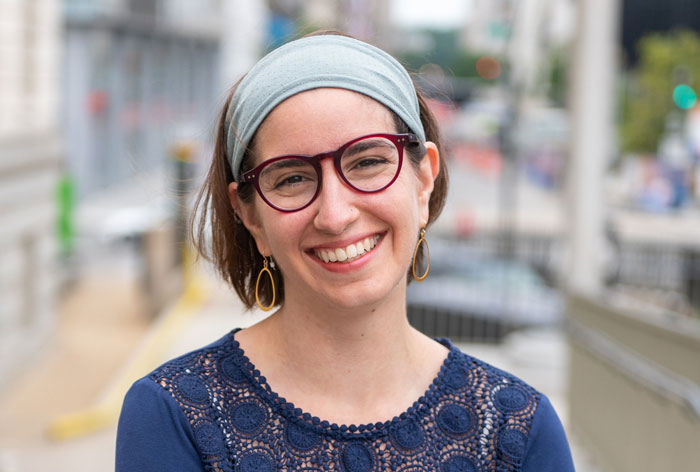Leviticus A New Torah Will Go Forth or, How To Sit With All Of Our Unanswered Questions

First Day of Pesach
How do you shecht a Leviathan? Just like us, the rabbis wrestled with their own pressing questions whose answers could not be found in the Torah. According to Vayikra Rabba, in the World to Come, the righteous would witness a dazzling duel between the mythical creatures the Behemoth and the Leviathan. After this contest of strengths, they’d get to eat the meat of these mythical creatures. But the rabbis wondered, how would these animals, that were unheard of in the Torah and did not exist in their times, be properly slaughtered so that the righteous might feed on them?
Don’t worry, answers Rabbi Avin bar Kahana. As the Holy One says in Isaiah 51:4, “A Torah will go forth from Me.” Noting the future tense of “will go forth,” Rabbi Avin bar Kahana explains, what is this Torah that will come forth from God? It’s a torah hadasha, a new Torah, or hiddush, an innovation, that until now, did not exist in this world. We may not know the proper way to slaughter the Behemoth and the Leviathan, and for good reason, they didn’t exist in the time of the Torah and they don’t exist now. But, when we get to the time when that question becomes necessary, God will provide us with a new Torah, with a hiddush, to speak to the pressing questions of our times.
For the 18th century Hasidic master Rabbi Levi Yitzchak of Berditchev, the concept of a new Torah is central to his understanding of Pesach. First, he writes, when it came time for God to give us the Torah, we weren’t ready for it. It would’ve made sense for God to give us the Torah as soon as we got out of Egypt, but it was too much, too soon. And so, according to Rabbi Yitzhak, God skipped over or delayed giving the Torah, hence the name of the holiday Pesach, meaning to skip over.
And then, once God gave us the Torah at Sinai, we could only understand the Torah within the narrowness of our context. Rabbi Yitzhak asks, why in the Ten Commandments, does God refer to Godself as our God that brought us out of the land of Egypt, out of slavery? Wouldn’t it make more sense to refer to God by God’s greater claim to fame, “creator of the heavens and the earth”? Because at that time, Rabbi Yitzhak teaches, our whole relationship to God was rooted solely in our experience of redemption. That’s all we knew;that’s all we could understand. But, at a future time, we will come to know God much more deeply and expansively, and then it will be as it’s said in Isaiah, “Torah will come forth from Me.” And, this is what’s meant by the name God uses when first introducing Godself to Moshe. Call me, Eheyeh Asher Eheyeh, I will be what I will be. Now, our understanding of God and Torah is limited by the constructs and needs of our times. But, in the future, our understanding of God and Torah will develop and evolve as God Godself develops and evolves. Both coming out of Egypt and standing at Sinai, God reveals to us only what we need when we need it. Torah on a need-to-know basis.
Dueling Behemoths and Leviathans aside, the question the rabbis asked in Vayikra Rabba is real. How will we know the answers to questions that until now haven’t been asked? How will our ancient tradition respond to questions of great importance never considered by the Torah? One way is through teshuvot, or modern responsa, in which people turn to their Jewish authorities to ask the questions for which there are not yet answers. (For some of my favorite modern teshuvot, check out Rabbis Ethan Tucker and Avi Killip’s podcast Responsa Radio.
From mundane questions around the use of technology on Shabbat à laFitbits and Kindles to queries that go to the heart of dignity and identity as we think through changing understandings of sexuality and gender, teshuvot, encapsulate the essence of Judaism as a Torat Chayim, a living Torah that must speak to modern questions if she is to remain relevant to our lives. This is the new Torah, God’s Torah, that is continually revealed to us, as our understandings evolve and shift.
On this Pesach, a holiday in which we celebrate the asking of questions, may we dare to ask the questions to which we don’t yet have answers and may we seek out a Torah Hayim, a living Torah that is capable of holding complexity and nuance as we wrestle to find answers.
Rabbi Avi Strausberg is Director of National Learning Initiatives at Hadar in Washington, D.C. She is a 2015 graduate of the Rabbinical School of Hebrew College.

